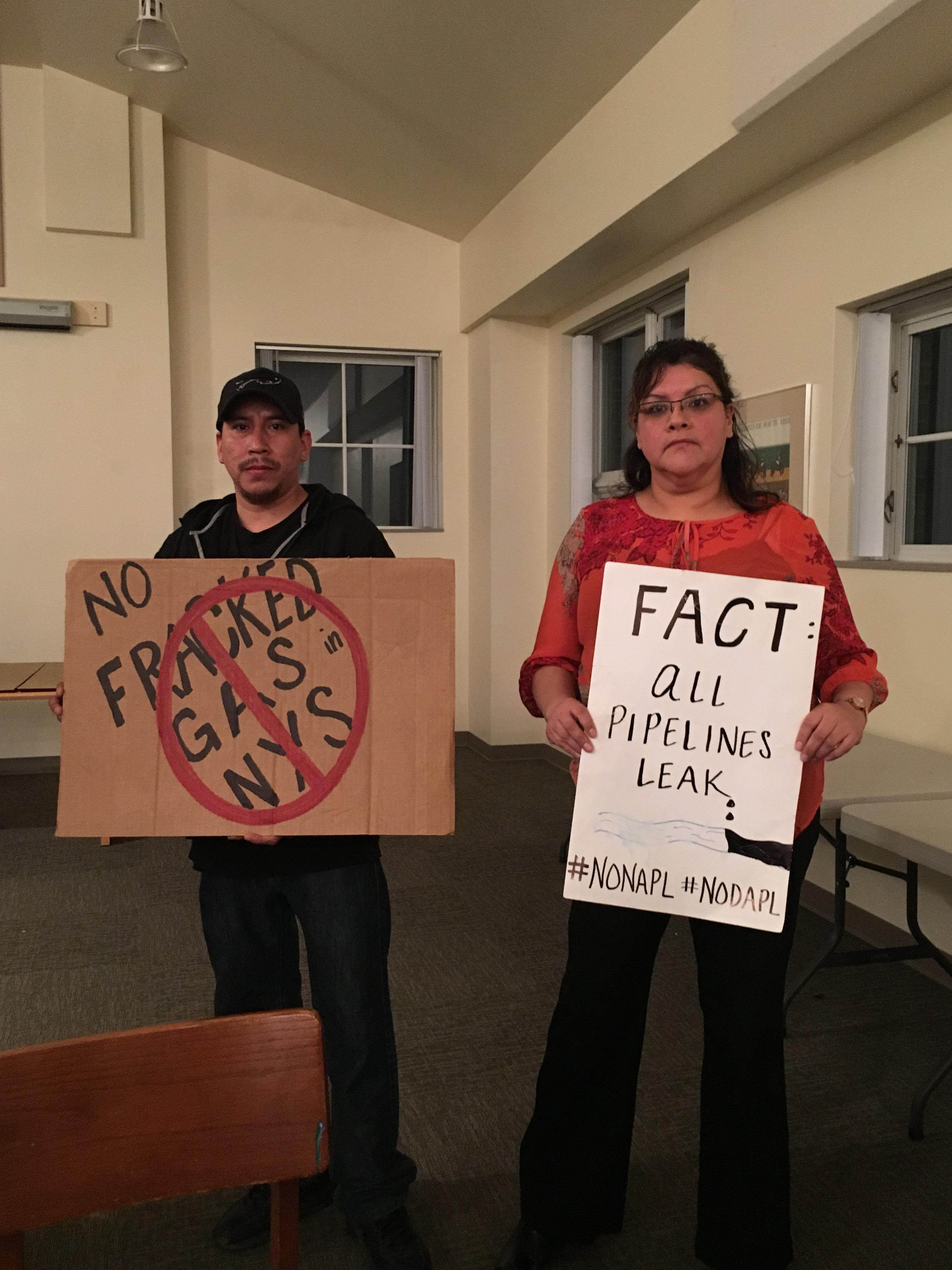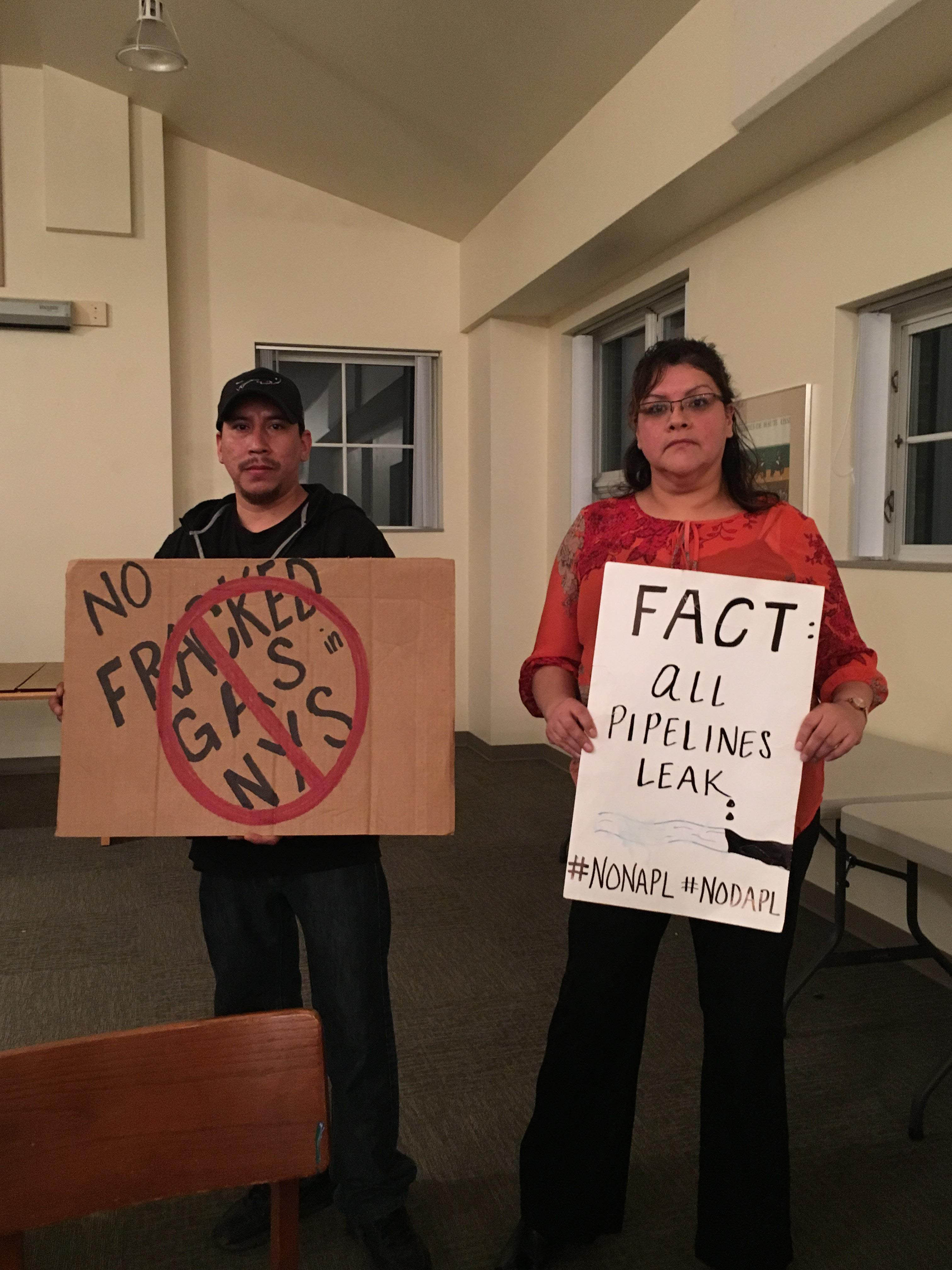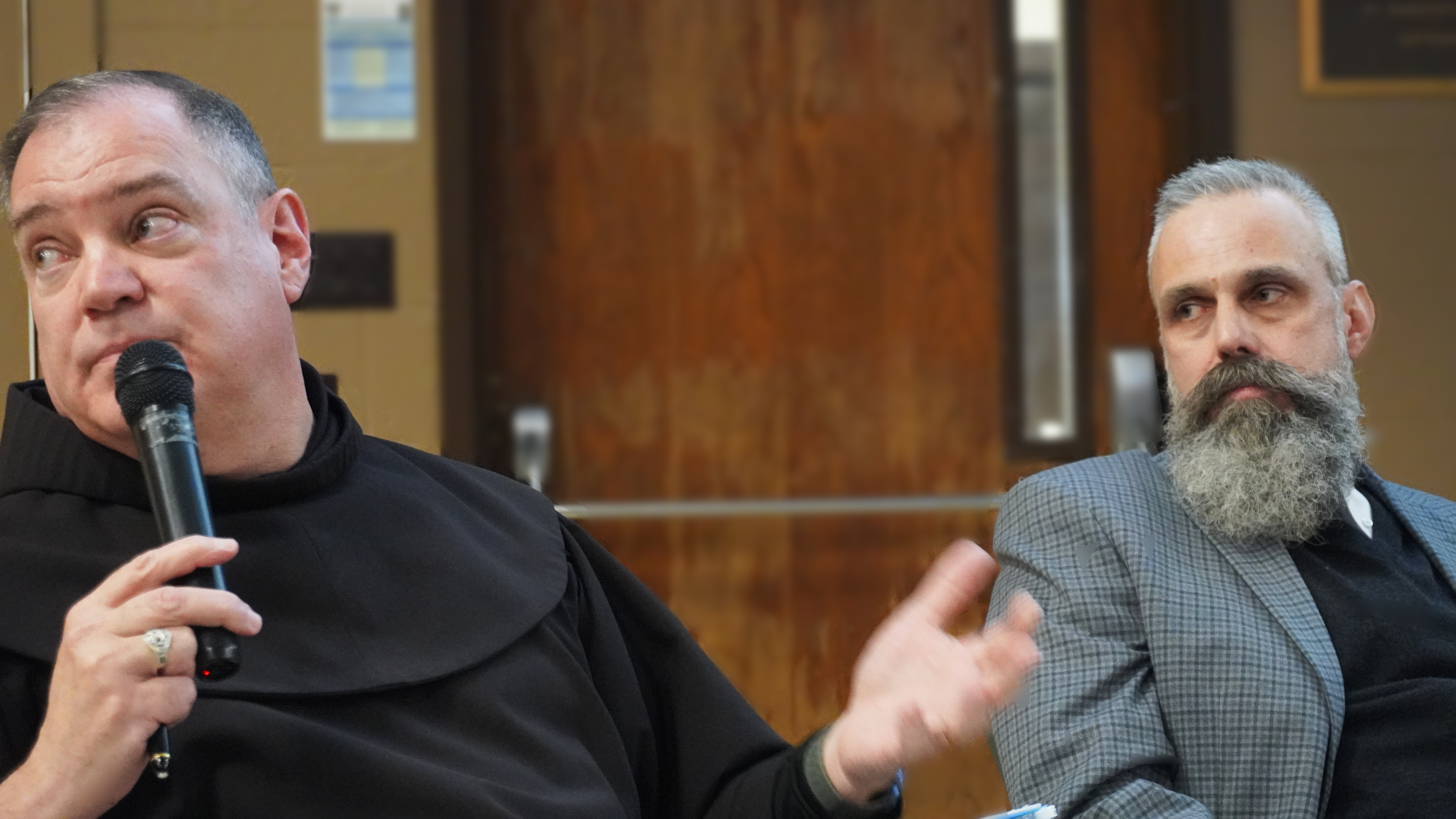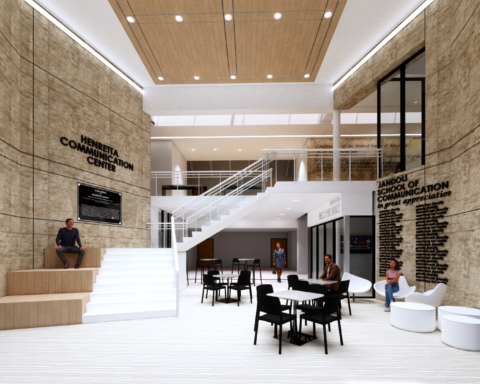By Christina Root
News Editor
Local community and national politics joined together during a Civil Dialogue discussion earlier this week.
“The Dakota Access Pipeline: A conversation with our neighbors in the Seneca Nation” was the fourth conversation to take place in this year’s’ Residence Life Civil Dialogue series.
The program, moderated by integrated marketing communications graduate student Hannah Gordon, took place in the loft of the Regina A. Quick Center for the Arts on Monday.
Featuring Seneca Nation of Indians president Todd Gates, the dialogue consisted of back-and-forth conversation between members of the community.
The Seneca Nation consists of three local territories – the Allegany, Cattaraugus and Oil Spring Indian Territory. The discussion played host to several members of the Seneca Nation.
In an opening statement, Gates stressed the importance of the Great Law of Peace, the oral constitution of the Iroquois Confederacy. According to Gates, the Great Law places protection of Mother Earth as its top priority.
“We have a responsibility not only to ourselves but to the environment, to the plants and to the animals,” he said. “To give them a voice. If we don’t take care of the environment, nothing else will matter.”
According to Gates, the issue is relevant to all people, regardless of location or background.
“The basic message—we can’t drink oil,” he said.
Speakers and water protectors in the audience also voiced their opinions and concerns.
Victoria Lydel, a Steamburg resident who married into the Seneca Nation, asked about other ways of showing support.
Gates replied that too much protesting would actually cause environmental damage, which is directly contradictory to their objectives.
“Call your representatives,” Gates said. “The federal government has a duty to represent the people. Talk to your congressmen directly; they can feel your energy.”
Despite the new government in Washington posing a challenge, Gates feels that representation for the environment needs to work against climate change.
“Polar bears are dying. I’ve seen villages in Alaska washing away to sea. I know this new administration says there’s no climate change,” he said. “But I’ve seen it. It’s coming.”
In addition to conversation explaining the DAPL protests, the dialogue featured statements and questions from local members of the Seneca Nation community, as well as protectors who visited Standing Rock in solidarity for the Sioux Tribe and to promote clean water.
According to Lydel, there was a source of community at the Standing Rock camp.
“It brought us back,” she said. “It reminded us to be conscious of the environment.”
When asked what else can be done in addition to protesting, the audience mentioned that donations made towards the cause, and fundraising for the legal defense of protectors is crucial.
Degawëno: Da’s, a member of Seneca Nation who attended the Dakota Access Pipeline Protests, ended the conversation by highlighting the importance of working together despite cultural differences.
“This is a responsibility,” he said. “We used to live in harmony. No matter where you came from, our ancestors depended on agriculture. This is crucial to all of us.”
rootcm14@bonaventure.edu







